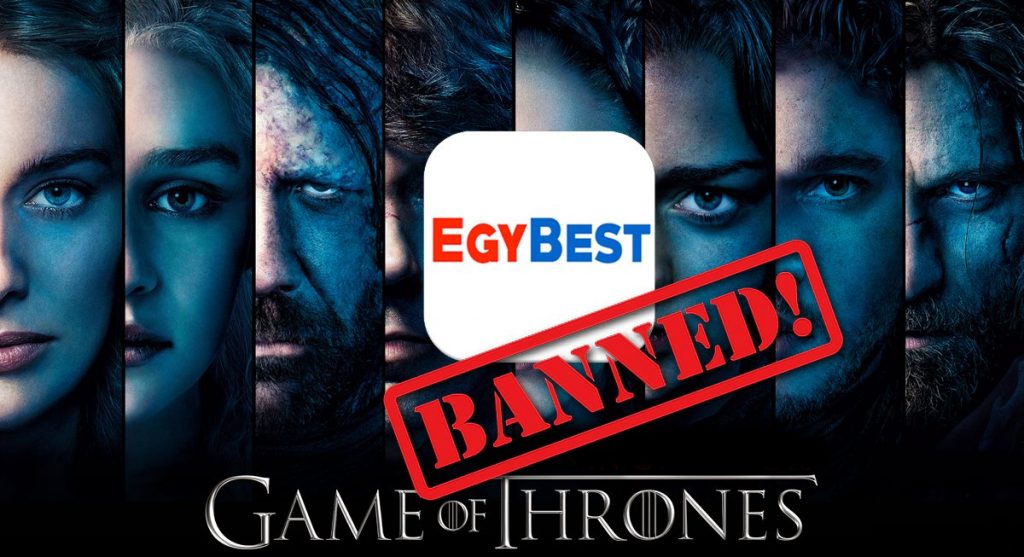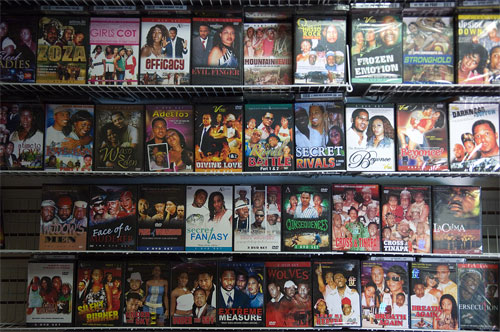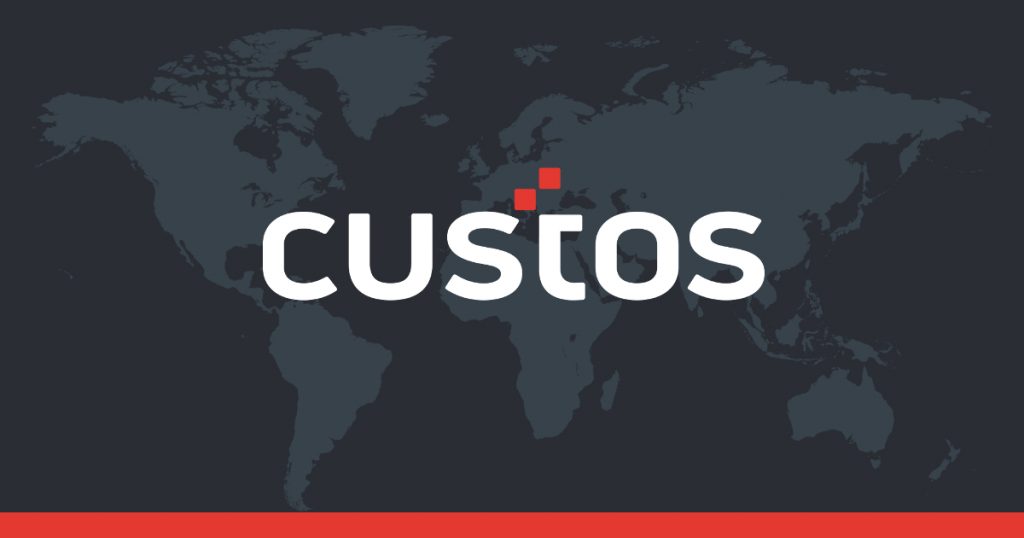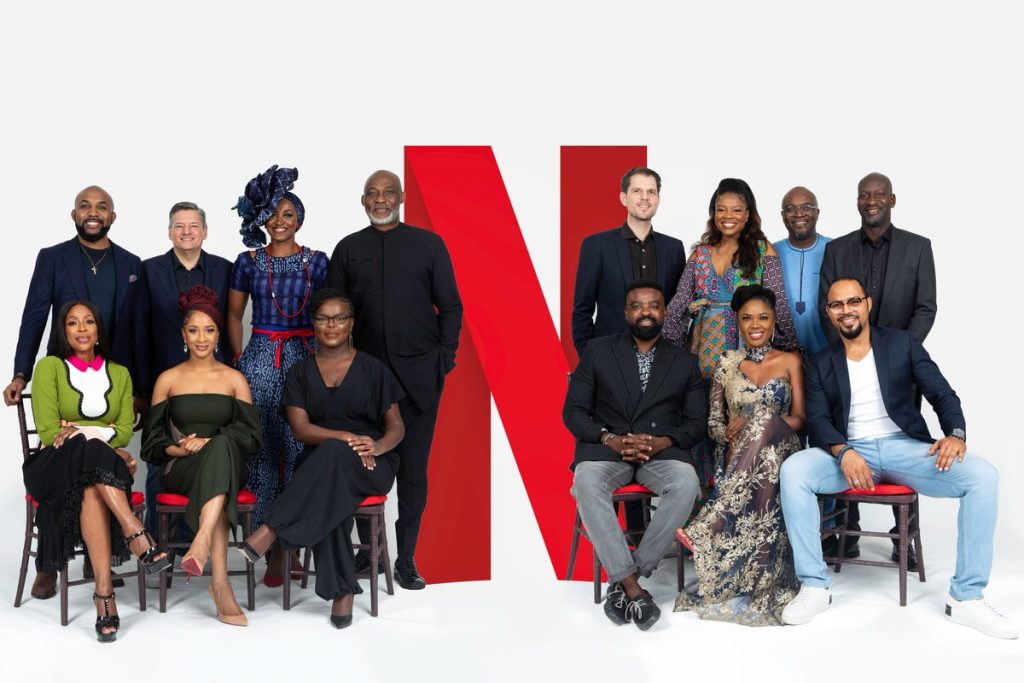Last Updated on June 19, 2020
Some of the topmost searches that drive traffic to this website are: Where can I watch this substitute movie name here?, Where can I download this substitute TV show here?, Where can I watch substitute movie name here for free?, Free download of substitute TV series here etc.
These searches show the extent to which movie piracy has eaten into the fabric of a society where people expect to get copyrighted works for free.
What is Piracy?
Piracy is the duplication of copyrighted content without authorization or permission from the copyright owner with the aim of making the content available at little to no cost to the end user.
Piracy comes in various shapes and forms, affecting music, books, games, software, movies and television shows around the world.
Television content remains the most pirated content globally, accounting for 49.38% of 190 billion visits to pirate websites in 2018. Illegal download of copyrighted content consumes over 24% of the world’s bandwidth and accounts for a yearly revenue loss of over $40 to $97.1 billion in the movie industry alone.
From the statistics above, it’s easy to see that piracy is a huge problem around the world. However, we will be looking at movie piracy in Africa and how it has affected film industries across Africa.
Effects of Movie Piracy on Some African Countries
South Africa made the piracy leaderboard
Some countries are better known for visiting pirate sites than others. At the top of that list are the United States of America, Russia, India, China and Brazil (as at December 2019). South Africa, a few years back, ranked 14th.
At first glance, South Africa occupying the 14th position might not seem ‘impressive’ on the leaderboard of film piracy until you consider that being 14th translates to over one million pirated movies every month from sites such as Pirate Bay and KickAss Torrent.
Locally, the South African Federation Against Copyright Theft (SAFACT) estimates that the revenue loss due to illegal film downloads is as high as 220 million rand every year.
Piracy is killing the Egyptian film industry
The Egyptian film industry is no stranger to movie piracy. In fact, Egypt’s film industry, which once had a golden age, has seen more and more viewers boycotting cinemas in favor of DVDs and the internet, thanks to piracy.
In turn, this has led to a sharp decline in production as filmmakers are struggling to recoup their investments.
Many have blamed the unregulated nature of the internet as the main reason behind the widespread growth of movie piracy in Egypt.

This has led many stakeholders in the Egyptian film industry on a fight against movie piracy in the country, launching several campaigns seeking to shutdown popular pirate websites in Egypt. One of the pirate websites affected was the popular, EgyBest, in 2019.
But like the Hydra in Greek mythology that grows two heads back after one has been cut off, these websites continue to sprout up under different names.
Cinemas are shutting down in Morocco due to movie piracy
Morocco is one of the top film destinations in Africa, with international film and television productions trooping into the country by the dozen. Locally, Moroccan films continue to maintain a high level of viewership among its local audience.
However, one of the main challenges facing the Moroccan film industry is the lack of theaters, with many old cinemas closed down in recent years – the main culprit: the flagrant piracy which has eaten deep into the cinema business in the country.
Uganda’s fame without fortune
Piracy has made many Ugandan actors and actresses famous. But these practitioners have nothing to show for that fame. In Uganda, actors have been known to take on additional odd jobs to make ends meet as acting alone doesn’t cut it financially.
Actors aren’t the only ones affected by movie piracy in Uganda. Pirated movies, sold for a fourth of what an original would go for, have also seen many Ugandan film producers lose their investment with many afraid to venture into film production in the country.

The Ugandan film industry, fondly known as Wakaliwood, might be growing. Unfortunately, that growth is being hampered by an old copyright law that isn’t quite clear on movie piracy, creating loopholes which many pirates have exploited to the detriment of the industry.
Algeria’s battle with movie piracy
Piracy is one of the main challenges facing Algeria’s content owners, affecting an estimated 60% of music and films productions in the country.
Like most countries, Algeria’s movie piracy problem is complex with no easy solution to it. One of the chief causes of movie piracy in Algeria is the low cost of technology, which has made it much easier for pirates to duplicate and distribute unauthorized copies of movies.
Things are further complicated by the lack of consumer awareness on what intellectual property means, seeing as many Algerian locals think it OK to buy “Best of” collections of their favorite actors and actresses in an all-in-one package, at ridiculously low prices.
Nigeria’s very own piracy ‘Mafia’
The top three countries by the number of feature films produced are India, Nigeria and China. Nigeria alone produces close to 2,000 movies a year.
It is estimated that Nollywood generates more than $7bn (about N2.6tn), employs over 1 million people yearly and accounts for about 1.4% of Nigeria’s GDP, according to the IMF.
Movie piracy is almost a given in Nigeria seeing as everyone wants a piece of the pie; including movie pirates who take a huge chunk amounting to over $1bn every year.
It is estimated that for every authentic copy of a Nigerian movie out there, nine are pirated. The revenue loss is immense as movie producers fail to recoup their investment and government loses out on tax revenue.
Behind this, is an intricate ring of pirates that run a smooth operation across the country. With an informal network of informants, corrupt law enforcement, unscrupulous film distributors and street vendors at every nook and cranny, these ‘mafia’ pirates are as powerful as it gets.

Unfortunately, with no viable film distribution chain or official film market in Nigeria, these pirates aren’t just the biggest and the largest movie distributors, they are the distribution.
Although, Nigeria has had laws protecting copyrights since 1988, movie piracy still remains a goldmine for its practitioners.
How Piracy Works in Africa?
There are similarities in the way piracy works in Africa when compared to the rest of the world. It usually consists of two steps
- Acquisition
- Duplication and Distribution
1. Acquisition
There are several ways a pirate can obtain an original copy of a movie.
Leaked Copies
A copy of a movie can be acquired by pirates from film industry insiders. This might come in the form of an unscrupulous employee on set, post-production studios looking for extra cash or cinema operators at movie premieres. Bribes, scare tactics and blackmail are popular methods used here.
In-Theater
Though not quite popular in Africa, in-theater recordings are another way a pirated copy of a movie can be obtained. Movies obtained this way are usually rife with ambient cinema sounds and poor video quality.
Streaming Platforms
Because of the proliferation of streaming services in Africa, more filmmakers are opting to release on platforms like Netflix and Showmax because of their perceived immunity to piracy. However, pirates have been known to record streamed content via special software.
DVD or Blu-ray Originals
While seen by most as a fading technology, DVD is still a thing, especially here in Africa. Pirates still find ways to work around DRMs installed on DVDs.
2. Duplication and Distribution
While illegal download of movie content in the form of torrents is quite popular in Africa, the cost of internet services is still high in some parts of the continent, making DVDs a popular medium for many.
Once an original copy of a movie has been obtained, pirates go on to mass reproduce these films thanks to the low cost of DVD duplicating machines (some going for as low as $500 on Amazon).
These copies are then sold at street corners or exported to nearby African countries and onto the rest of the world.
Why do people consume pirated movies?
There is no piracy without the consumer. Despite the many disadvantages to consuming pirated content like breaking the law, identity theft, malware and viruses, people still go for pirated movies.
” There is no piracy without the consumer.
-AMDB.tv (2020)
Before we proffer measures to help reduce movie piracy, it is important to understand why people pirate and watch pirated movies in the first place.
Money
Money seems to be a culprit behind many vices including movie piracy. Money is a major reason why pirates steal and sell other people’s work. Money is also the reason why people buy pirated copies from pirates as 9 times out of 10, a pirated movie is cheaper than its original and in some African countries, that makes all the difference.
Nothing Beats Free
Do you know what is better than cheap pirated movies? Free pirated movies on the internet. Why pay $10 to go see a movie at the cinemas or $10 on Netflix or $7.99 on Showmax when you can easily download that movie and several others on a free Wi-Fi network?
Restrictions
Many streaming platforms usually have different content libraries for different countries. Some restrictions placed on a region have been known to push users towards piracy to see their favorite shows from other regions.
Victimless Crime
Like stolen museum artifacts, there is the misinformed notion that movie piracy is a victimless crime and it’s not really hurting anyone.
How to reduce movie piracy
Now, that we have some insights on why movie piracy is popular, here are some ways piracy can be mitigated if not eradicated.
Use of Tech
Everything hinges on technology these days including movie piracy. To disrupt the movie piracy industry, technology must be employed. Firms like Custos Media Technologies understand this.

Custos is a South African tech company using blockchain technology to fight piracy. They use financial bounties to trace pirates who illegally distribute copyrighted films. So far, Custos has protected over 350,000 films globally.
In Kenya, the copyright board has the Anti-Piracy Security Device (APSD) which uses barcode and hologram technologies to differentiate between an original copy of a film and its counterfeit.
Countries are also recruiting the help of Internet Service Providers (ISPs) who have internal tracking and monitoring systems which can detect when pirated content is accessed over the internet.
Legislation and Enforcement
One of the reasons why movie piracy thrives in Africa is because there is little to no laws covering it and there are no real punishments to serve as deterrent to prosecuted movie pirates.
However, some African countries are gradually changing the narrative. In Uganda, a new policy on intellectual property was passed in 2019, for the promotion and protection of IP rights in the country.
In South Africa, there are different punishments for pirating a movie. A first-time offender receives up to R5000 in fines or 3 years in jail for each item that is distributed while a repeat offender could receive up to R10,000 in fines or 5 years in jail.
In Algeria, the National Copyright Office (ONDA) has been known to go on nation-wide anti-piracy raids, seizing and destroying millions of pirated materials found.
This is made possible by Algeria’s law on copyright and related rights which empowers ONDA to carry out searches, record copyright infringements and seize counterfeit materials.
Distribution Channels
To combat the activities of movie pirates, Africa needs to rethink the distribution channels
Cinemas
Cinema going has all but died in most African countries. But stakeholders in the film industry have to find a way to release more movies in theaters at affordable rates.
Instead of charging high ticket rates, filmmakers can negotiate product placement deals with brands and advertisers while keeping the price cheap to the general public.
Additionally, a long theatrical run spanning 8 to 12 weeks is key here as it will help investors recoup a good portion of their expenses before the DVD release where most pirates hold sway.
Grassroot Outreach
Not many people can afford to go see a movie in a theater. This was evident when Mahamat-Saleh Haroun, the Chadian filmmaker, had to pay for ticket prices for locals to come see his film, Bye Bye Africa (1999) in Chad.
Grassroot outreach is a way to have more people see African movies at little to no cost to them without resorting to pirated copies. One filmmaker that employs this tactic is the Nigerian film director, Tunde Kelani.
Kelani first used this method in his 2009 film, Arugbá, where he reached more than 2,500 people in 57 local councils at free outdoor viewing centers.
In his 2011 film, Ma’ami, Kelani, funded by sponsors, reached over 70,000 Lagosians by using the 700+ sports centres of the Lagos State Viewing Sports Centre Associations to show his film whenever there was a free slot in the schedule.
Streaming Services and Rentals
The use of streaming platforms is another way to reduce movie piracy in Africa. It shortens the supply chain between the filmmaker and the viewer ensuring that movie pirates have a lesser chance of reaching the end user before the content owner.

Hence, African filmmakers are taking advantage of the opportunity provided by streaming platforms such as Amazon and Netflix. For example, the rights to Nabil Ayouch’s Moroccan movie, Razzia (2017), were sold to Amazon while Lionheart (2018), a movie directed by Nigerian actress, Genevieve Nnaji, was acquired by Netflix.
African content providers are not left out. South Africa’s DSTV offers movie rentals from the comfort of one’s home, thanks to various partnerships with content owners. African platforms like Irokotv, Afrinolly, StarNews Mobile, Shofha.com and ReelAfrican offer similar offerings.
Conclusion
Movie piracy is a sad reality that we have to live with in this world of unending TV shows and movie franchises. However, we can find ways to cut down its spread across Africa.
And while some school of thought may say that the African film industry got popular because of piracy, it’s also important to note that piracy will be the death of the film industry in Africa if measures are not taken to reduce it.
Tell us in the comment section what you think about movie piracy in Africa.
